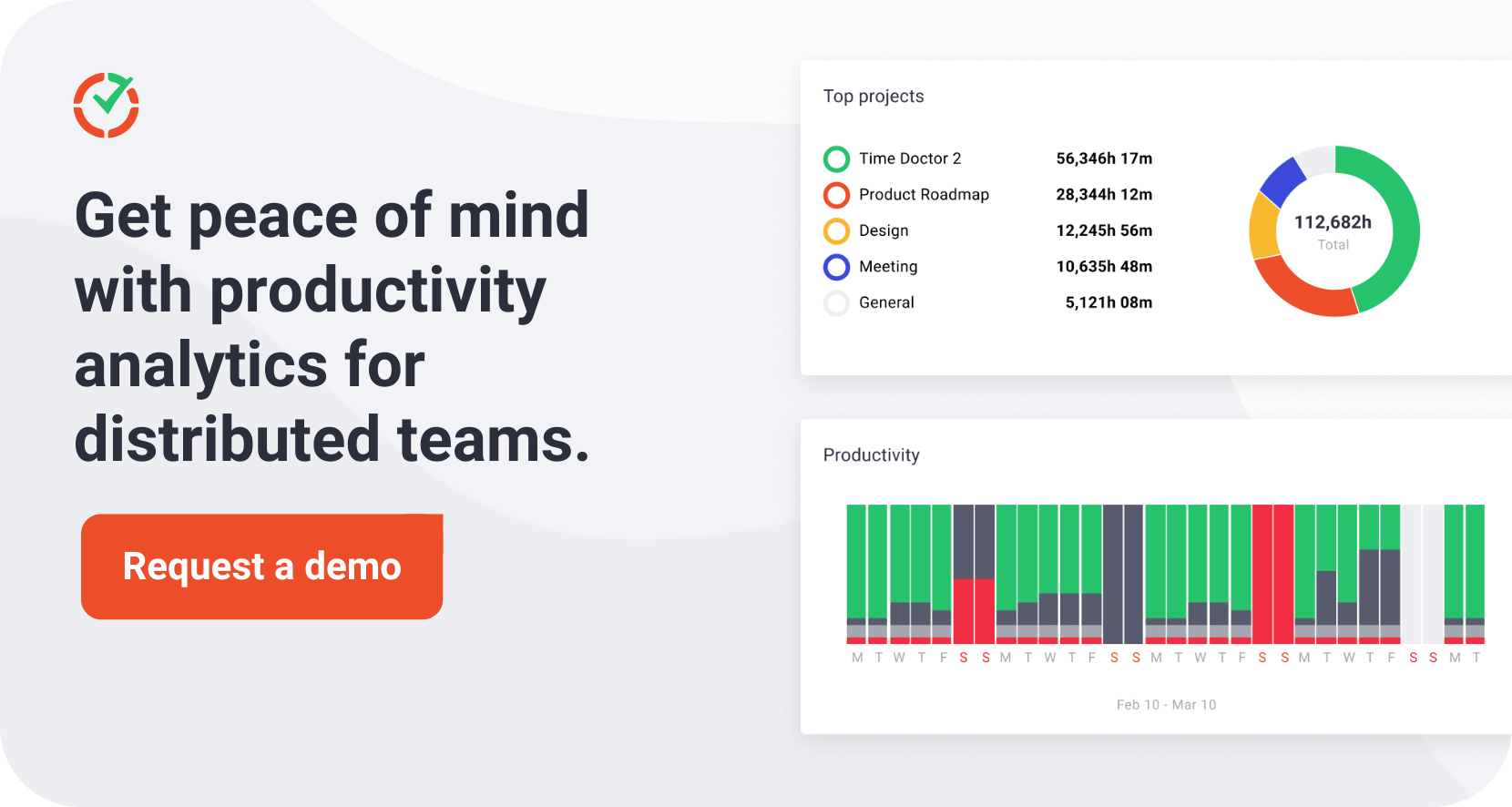32
The last few years have seen the rise of the remote agent and remote work. Are these here to stay? What does the future hold? We examine the trends and benefits of employing remote agents, along with some of the challenges.
The surge of remote work since the COVID-19 pandemic has created new attitudes toward employment. Forbes recently found that 98% of employees want to work remotely at least some of the time, showing just how popular flexible work environments are.
This has led to the inevitable rise of the remote agent. Many BPOs (Business Process Outsourcers), contact centers, and other agencies now use predominantly remote workers. This trend is sweeping all sectors of the so-called knowledge economy. Hybrid working – where knowledge workers are only required in the office one or two days a week – has fast become the norm.
Since remote work is seemingly here to stay, many businesses are now beginning to speculate on what the future will look like if they continue to hire mostly remote agents on flexible working models. How can companies establish and maintain successful remote or hybrid working environments? What benefits do remote agents bring?
This article aims to answer these questions, delving into the advantages, predictions, and trends around remote agents. It will also explore how companies can successfully prepare for sustainable and flexible work models in the future by investing in employee monitoring tools.
What are remote agents?
A remote agent is simply someone who performs their work duties from a location outside of a traditional office or contact center, typically from their own home. However, remote agents can also work in co-working spaces and regional hub offices. Remote agents use digital technology to connect with cloud apps to complete tasks remotely and communicate with customers, colleagues, and employers.
There are many different types of remote agents, depending on their roles and industries. Here are a few examples:
- Customer service agents: Contact center work usually involves providing service to customers via phone, email, chat, or social media. As this communication doesn’t happen face-to-face, there is little requirement for contact center workers to be in a fixed office location. They may work for a variety of companies, such as in-house or outsourced contact centers, BPOs, public sector bodies, online retailers, utility companies, and banks or financial services companies.
- Software developers: Writing and testing code for software applications is another profession that needn’t be tied to a permanent physical location. Programmers and designers may work for software companies, startups, BPOs, agencies, or the internal IT departments of large corporations.
- Virtual assistants: These workers provide administrative, technical, creative, accounting, bookkeeping, or marketing support to clients or internal colleagues from a remote location. They may work for individuals, small businesses, public sector bodies, or large companies – and they may be self-employed, work via job boards such as Fiverr or Upwork, or be employed by a BPO or staff leasing agency.
The types of tasks remote agents can perform are endless but include handling customer service interactions, debt collection, helpdesk support, data entry, market research, social media marketing, content creation, email marketing, search engine optimization, bookkeeping, payroll, and tax preparation.
The number of remote agents globally is growing rapidly as more and more companies realize the benefits of remote work, including increased employee productivity, higher employee engagement, lower overhead costs, and access to a wider talent pool.
Establishing a team of remote agents
Certain industries and job roles suit remote work better than others. The contact center and outsourcing sectors benefit from remote agents because their work can be done from anywhere. Many people employ remote or hybrid workers when starting a BPO business. These companies require maximum flexibility, which is why future trends indicate that the number of remote workers in contact centers and BPOs will continue to grow.
Building a productive team of remote agents isn’t a matter of just hiring and setting them loose. It demands strategic planning and dedicated implementation.
- Define your vision: Start by clarifying your needs and goals. Identify essential roles, skills, and desired remote work conditions. Outline clear goals and metrics for both individual and team performance. This creates a roadmap for your agents and helps measure progress.
- Attract remote talent: Cast your net wide using remote-friendly platforms like LinkedIn. Look for candidates with the needed skills, self-motivation, and tech-savviness. Video interviews reveal personality fit and cultural alignment, while online tests assess practical skills.
- Onboard and equip: A smooth onboarding process sets the tone. Introduce agents to company policies, workflows, and tools. Provide them with suitable hardware, software, and communication platforms. Invest in training and ongoing support to ensure they feel empowered and equipped.
- Enable collaboration: Communication is king. Utilize a mix of video calls, instant messaging, and project management tools to keep everyone connected. Schedule regular team meetings and one-on-one check-ins to foster open communication and build team spirit. Virtual team-building activities can further strengthen bonds and boost morale.
- Manage and motivate: Set clear performance expectations and track progress through data and regular feedback. Encourage healthy work-life balance with flexible schedules and tools. Foster a strong company culture through shared values and a sense of belonging, even across physical distances. Remember, adapt and improve! Be open to feedback and refine your approach to keep your remote team thriving.
By following these steps and cultivating a supportive environment, you can build a functional and exceptional team of remote agents. Additionally, you must demonstrate to your clients and investors that your team can work to a high standard under flexible conditions. The best way to do this is to invest in productivity-tracking software that monitors your remote agents’ performances.
Benefits of using remote agents
Remote work has many upsides, which is likely why it has stuck around since the pandemic. Despite society returning to normal, remote work remains a popular and widespread working model for many businesses in various industries. This indicates that flexible environments like remote and hybrid work bring multiple benefits to workers and companies.
Here are some of the critical advantages of using remote agents in a semi-autonomous working environment:
- Attracts more staff: Companies who offer remote or hybrid working options can fill job vacancies more easily. A recent study by McKinsey found that 87% of employees choose to work remotely when given the opportunity. This indicates the popularity of remote work and suggests that workers are drawn to remote opportunities.
- Improves quality of talent: Similarly, the prospect of remote work increases the quality of workers applying for your jobs. By offering remote work, you can attract and retain better talent for your business.
- Decreases burnout and absenteeism: When companies provide flexible working opportunities for their employees, staff feel less overwhelmed and more in control of their work-life balance. This decreases the negative consequences of busy schedules, like those found in contact center jobs, reducing burnout and absenteeism.
- Reduces employee turnover levels: By reducing burnout and giving employees more flexibility and control over their working hours, remote working opportunities can significantly reduce staff turnover. You’ll increase employee retention, helping you build and retain a team of skilled workers.
- Boosts employee morale and engagement: Remote work can lead to happier and more engaged employees. Employees who feel trusted and empowered to work remotely tend to be more satisfied with their jobs and more productive overall. This can lead to a more positive work environment for everyone.
- Increases productivity and reduces costs: Studies have shown remote workers can be just as productive or even more productive. Even before COVID-19, a Stanford study showed that remote workers were 13% more productive. This is likely due to fewer distractions, flexible work schedules, and improved work-life balance. Additionally, companies can save money on office space, utilities, and other overhead costs when they have a remote workforce.
- Improves environmental sustainability: Remote work can help reduce the environmental impact of businesses. With fewer employees commuting to work, fewer cars are on the road, which means lower emissions and less traffic congestion.
- Greater diversity and inclusion: Remote work can make it easier for companies to hire and retain employees from diverse backgrounds. This is because employees don’t have to live near the office or contact center, which widens the recruitment net and can lead to a more inclusive and representative workforce.

The pitfalls & challenges of using remote agents
Of course, it’s not all upside – some potential pitfalls to employing remote contact center agents exist. With due diligence and care, however, these can all be overcome:
- Productivity worries: Remote workers may be more easily distracted when working from home, and they may not have the same sense of urgency as workers in the office, leading to lower productivity and missed deadlines. This is generally what senior management fear; however, studies suggest otherwise.
- Poor communication: If they are not communicating regularly with their colleagues, there is a risk that remote workers miss out on important information or updates, which means there is a possibility for more significant misunderstandings and increased errors.
- Isolation: People working from home, on their own, can feel isolated from their colleagues and managers, which could result in loneliness, lack of motivation, and a general downturn in mental health and well-being if not caught and addressed.
- Security risks: Remote workers could be more vulnerable to security risks, such as hacking or data breaches because they are not working on a secure company network.
- Technical problems: If a remote worker encounters technical problems such as power or internet outages, getting them back online can be outside the company’s control. Providing tech support for other IT issues – such as using the company’s systems or software – is also more challenging remotely.
It’s essential to mitigate these risks, such as providing remote workers with the necessary equipment and training, setting clear expectations, and communicating regularly. For example:
- Use a cloud-based contact center solution that is accessible from anywhere.
- Provide remote workers with the same tools and resources as in-office workers.
- Set clear goals and expectations for remote workers.
- Communicate regularly with remote workers, both individually and as a team.
- Use video conferencing to stay connected with remote workers.
- Provide opportunities for remote workers to socialize and interact with each other.
- For remote workers, create a tech support helpdesk via phone, chat or email.
These tips can help ensure your remote contact center workers are successful and productive.
Monitoring your remote agents
For all the benefits and upsides of remote work, there are also risks. Remote workers must be self-motivated and disciplined to perform their responsibilities successfully. If they can’t remain productive working from home, CEOs, managers, and clients will begin to worry about the output of your business.
Companies can introduce workforce analytics software to their remote teams to ease the worries of the board, investors, clients, and upper management. Tools like Time Doctor give senior staff the insights and data they need to reassure their clients of productive and efficient work. Through non-invasive tracking processes, Time Doctor can help your company establish an effective and motivated remote workforce.
Current and future trends of remote work
Remote work is undoubtedly here to stay, but what does the future hold for flexible working environments? Here are some current trends and future predictions about where the world of remote work is headed:
- Hybrid work models will become more common: In the future, hybrid work will likely become the norm as companies look for ways to get the best out of both worlds. Hybrid opportunities allow businesses to blend the flexibility of remote working with the physical and centralized aspects of in-office work, helping them to attract staff even if global talent shortages continue.
- Technological advancements will benefit remote agents: Technology constantly evolves, and future developments will likely focus on helping remote teams. Productivity tracking software, communication tools, and an increasing prevalence of VR and AI will all facilitate remote working environments.
- Remote workers will continue to have more control: Current trends indicate that employees value their work-life balance more than ever before and aren’t afraid to switch jobs if they feel this balance isn’t met. This will continue to push businesses into offering more flexible working environments.
- Society will continue to adapt to more remote workers: As more and more people begin to work remotely, society will change to accommodate them. Co-working spaces, for instance, will become more widespread.
- Focus on performance, not activity: In general, there is an increased reliance on asynchronous communication (email, Slack, Loom) and workers managing themselves. Performance metrics shift from tracking activity to measuring outcomes and the worker’s impact on the business or customers. Managers must learn to trust and empower their remote teams, focusing on results rather than micromanaging them.
- Data-driven decision making: Utilizing data analytics and machine learning to understand remote employee productivity, well-being, and communication patterns will become crucial. Managers can use this data to perform targeted interventions where necessary and make real-time adjustments to support remote teams effectively. A state-of-the-art WFM (workforce management) that uses real-time analytics can provide management with the required data.
- Building a strong team culture: Fostering a sense of belonging and connection to the company is certainly more difficult with a distributed workforce, but it is not an impossible challenge. Managers must employ virtual team-building exercises, regular one-on-one and team coaching and catch-up sessions, and create more opportunities for informal interaction to build a team culture. Physical get-togethers once a month or once a quarter should be considered if possible.
Trends in technology and tools:
- Collaboration and communication tools: Advances in video conferencing, VR, and AR will blur the lines between physical and virtual teams, enhancing collaboration and enabling more real-time interactions.
- Cybersecurity and data privacy: As more sensitive data is stored and accessed remotely, robust cybersecurity measures and data privacy protocols will become increasingly essential. Companies must invest in secure cloud solutions and employee training to mitigate cyber threats.
- Wellness and productivity apps: Tools that promote mental health, help people to focus, and assist with time management will gain popularity as companies strive to support the well-being and productivity of their remote workforce.
Overall shift in work culture:
- Greater emphasis on work-life balance: The rise of remote work has empowered employees to prioritize their well-being by giving them increased flexibility and more control over their schedules. This trend will likely continue, with companies implementing policies and practices promoting healthy work-life boundaries.
- Redefining the office space: Traditional office spaces will evolve to cater to hybrid work models. This could include providing designated areas for collaboration, team meetings, and other forms of social interaction, while individual work may mostly occur remotely.
- Distributed workforce model: To take advantage of the remote model, companies may increasingly hire a geographically diverse workforce, tapping into global talent pools as they are no longer constrained by physical location. This means adapting communication, collaboration, and management strategies to straddle multiple time zones and account for different cultural perspectives.
Far from retreating post-COVID, the world of work continues to be transformed as technology, management practices, and the overall work culture evolve. Forward-looking businesses can leverage these trends to create a competitive advantage.
A bright future for remote working
Considering the benefits and current trends of remote working, many companies have now accepted that these flexible work models are here to stay. Future predictions point to a more widespread and normalized concept of remote work, with technological advancements and shifting attitudes cementing its place in the world. Contact centers and outsourcing firms should consider implementing remote or hybrid work environments.
Suppose companies use the right tools and provide the proper training. In that case, remote work models can be utilized effectively to attract top talent, retain existing staff, and improve the quality of their employees’ work-life balance. In suitable environments, remote workers can be as productive as their in-office counterparts.
Contact Time Doctor today to request a free demo for your company. Take advantage of our free trial to see how our software can give you the insights and assurance you need to run productive and efficient remote operations.

Carlo Borja is the Head of Content Marketing for Time Doctor, a productivity analytics software for distributed teams. He is a remote work advocate, a father and a coffee junkie.



